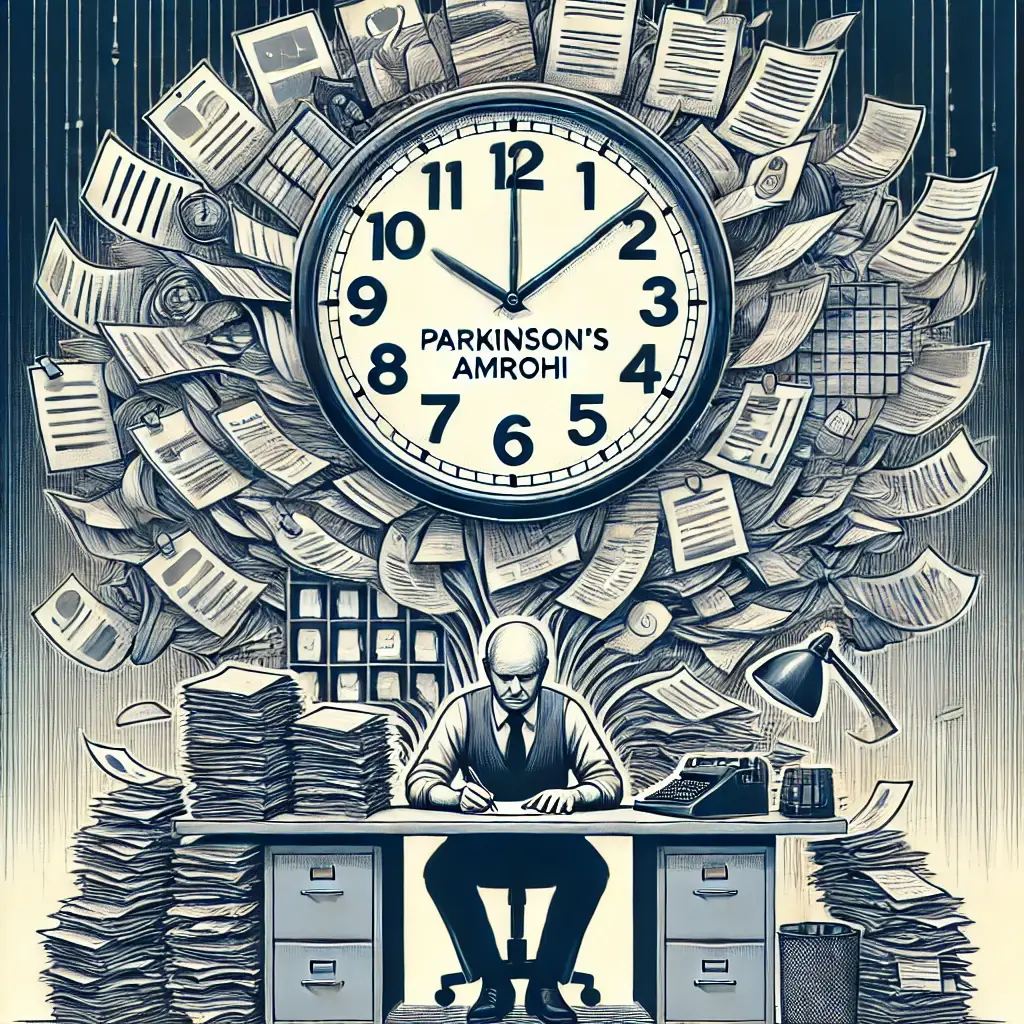
Parkinson’s Law: The Work Expands to Fill the Time Available
Introduction
Have you ever noticed that a task often takes exactly as long as the time you give it? For example, writing a simple email might take an hour if you have the time to spare, but only five minutes when you’re on a deadline. This is Parkinson’s Law in action.
Parkinson’s Law states:
“Work expands to fill the time available for its completion.”
This principle is both a challenge and an opportunity for improving productivity. In this blog, we’ll explore the origins of Parkinson’s Law, how it manifests in everyday life, and strategies to work smarter—not longer.
What Is Parkinson’s Law?
Parkinson’s Law was first coined by British historian and author Cyril Northcote Parkinson in a humorous essay published in The Economist in 1955. The law highlights how people often procrastinate and overcomplicate tasks when given more time than necessary.
How Parkinson’s Law Affects Productivity
- Procrastination
When deadlines are distant, we tend to delay starting tasks, often leaving them until the last minute. - Overcomplication
Extra time leads to unnecessary revisions and overthinking, turning simple tasks into complex projects. - Reduced Efficiency
Tasks that could be completed quickly are stretched out, wasting valuable time.
Examples of Parkinson’s Law
- At Work
A report that could be completed in two hours often takes a full day when given an eight-hour deadline. - In Meetings
Meetings expand to fill their scheduled time, even if the discussion could conclude earlier. - In Daily Life
Household chores can stretch into an entire afternoon if no specific time limit is set.
How to Overcome Parkinson’s Law
- Set Shorter Deadlines
Give yourself less time than you think you need to complete a task. This creates urgency and forces focus. - Use Time Blocking
Allocate specific time slots for tasks and stick to them. For example, set 30 minutes to answer emails instead of letting it take over your morning. - Break Tasks into Smaller Goals
Divide larger projects into smaller, time-bound milestones to maintain momentum. - Eliminate Distractions
Focus entirely on the task at hand to avoid stretching it unnecessarily. - Embrace the 80/20 Rule
Focus on the 20% of work that delivers 80% of the results to avoid wasting time on less critical details.
The Benefits of Beating Parkinson’s Law
By working within shorter timeframes, you can:
- Increase Efficiency: Get more done in less time.
- Reduce Stress: Avoid the anxiety of last-minute crunches.
- Boost Creativity: Deadlines encourage innovative thinking.
Why It Matters
Parkinson’s Law isn’t just about time management—it’s about maximizing potential. Understanding this principle allows us to reclaim wasted time, improve productivity, and achieve our goals faster.
Conclusion
Parkinson’s Law reminds us that time is a finite resource. By setting boundaries and working with intention, we can break free from the trap of procrastination and inefficiency.
The next time you’re planning your day, challenge yourself to complete tasks faster than expected—you might be surprised at how much you can accomplish.
Stay tuned for more insights into behavioral science and the principles that shape our productivity and decision-making.
